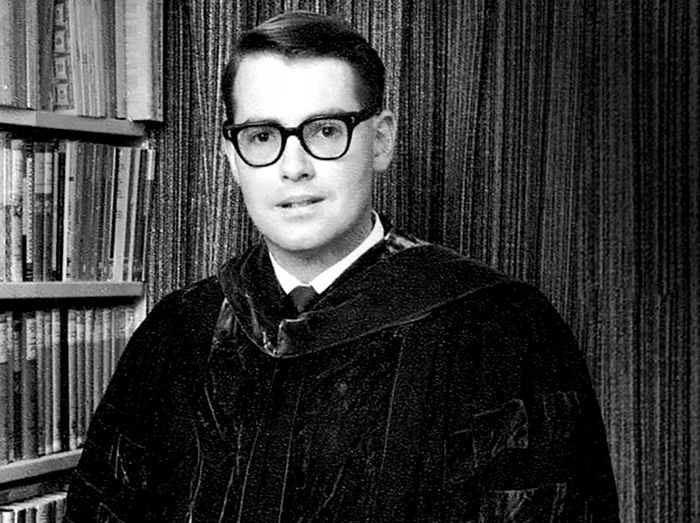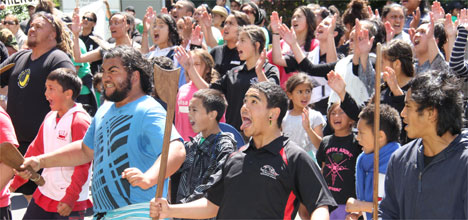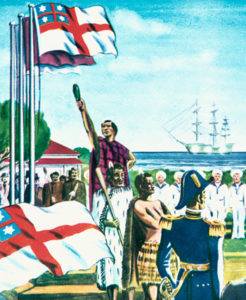
White Privilege debate
Video: The Jesse Lee Peterson Show
https://www.facebook.com/WorldCloudLA/videos/807724096018441/
What an ex-Labour minister thinks of Labour & the Treaty

We have this rather extraordinary liberal preoccupation with everything Māori while we push Pakeha culture aside. Māori are having a whale of a ride on the back of the Treaty. What the Treaty doesn’t say they make up, and the liberal intelligentsia are “yes, yes, rah, rah”. The courts chime in from time to time. So you won’t see much movement on monarchy, for example, from Māori, who want to maintain the link with the Crown, or from the wider New Zealand public…..
…..Why should I be? I’m only jumped on by ignoramuses – people who believe in big government and people who think te reo and separatism are the answers to Māori problems. After World War II, we were empowering Māori, but then we slipped into welfare mode, and Māori have been the biggest and most conspicuous of the losers from modern policies. That is what worries me. I didn’t attend integration rallies in the United States in order to come home to find Māori pushing for separatism and separate treatment. What irritates me most of all are the liberals who marched alongside me when we wanted to stop rugby contact with South Africa because of apartheid; those same people now say, ‘Let’s do some separatism, just a little bit”. If we want to ruin this country, that is the way to do it. Not only because it’s wrong, but because it is proven not to help Maori…….
Source →
Maori whining about protection & equality

But you don’t mind using the benefits of Northern hemisphere technology, do you…….benefits you use in every single daily aspect of your lives.
It’s a fact that ‘maori’ have actually invented/discovered absolutely nothing technological.
They have been instrumental in finding new processes and solutions to various scientific and academic problems and deserve kudos for that, but never invented anything.
No-one else here seems to mind sharing, in fact everyone except ‘maori’ sees the population of NZ as one people – New Zealanders, an ability which seems to have escaped ‘maori’. ….
And then read why the TOW was written and agreed upon in the first place; it was to protect you all from yourselves, from raiding, from being sold by various tribes into slavery, from being cannibalised by neighbours, protection from various other nations who coveted these isles who would have given you a damn site worse treatment than you ever got from the British.
No-one cares who was here first, all most people want to do is simply discover the truth of who else has been here in the long history of these isles.
All ‘maori’ have done since gaining protection and equality is whinge about it, twist NZ history, claim everything in sight, change the meaning of words to suit, and squeeze as much money from the country as possible to the point where now our hospitals, health and housing are in jeopardy due to the lack of available government funding.
And the ‘squeezed’ money doesn’t even trickle down to the average ‘maori’ either – it stays in the hands of tribal elite. Well done….
By Paddy John
Ending inter-tribal warfare

Reluctant Colonisers
New Zealand in the 1830s had no government or political structure either Polynesian or British. The native tribes were frequently at war with one another and there was no concept of a united Pacific nation. This was despite the fact that in 1835 there was a Declaration of Independence cobbled together by British Resident, James Busby. Although signed by a number of chiefs, mostly from Northland, and accepted by the British government, it did not set up a unified Maori nation.
Up until 1838. the British government had no desire to get involved in New Zealand and establish another expensive colony. It was well aware that British settlement was increasing, but was reluctant to interfere. In the meantime, it was happy to let the Governor of New South Wales monitor the changing New Zealand scene from across the Tasman. However, ultimately it was the expanding European (mainly British) economic activity, trading and settlement, and concerns over the impact of these developments on the native peoples that forced the British government’s hand. Also influencing London were the concerns expressed by missionaries and the entreaties of some chiefs.
The Maori Dark Age
The scattered native tribes (variously called indigenous people, Aborigines, savages, natives, New Zealanders, but not Maori at this stage), had been rapidly killing each other off since the 1800s in devastating inter-tribal conflicts, sometimes called the Musket Wars.
In over 500 battles prior to 1840, tens of thousands of indigenous people had been killed or wounded and many innocent men, women and children had been senselessly slaughtered and often eaten. Hundreds of others had been taken into slavery.
Furthermore unfamiliar diseases, like smallpox, were decimating the population in many areas, notably among Ngai Tahu in the South Island.
European influences on the native peoples increased as the 1830s proceeded, but the degree of interaction varied enormously. The tribal groups of the north, especially in Northland, had the greatest contact with white missionaries, traders, settlers, escaped convicts from Australia and travellers.
Inevitably there was inter-marriage, and this would ultimately mean that today all Maori are in fact part-Maori, and most have more ancestors of European origin than Polynesian…….
